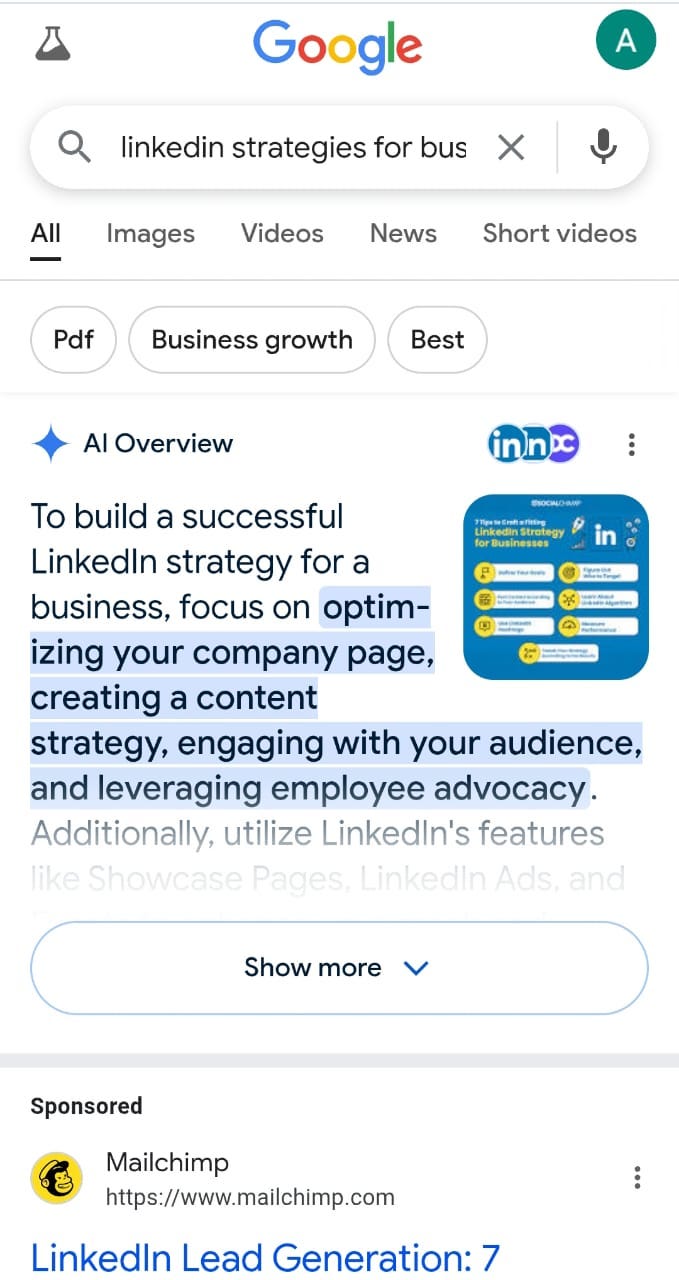The Bleak Fate of Online Media in the Age of AI
The Bleak Fate of Online Media in the Age of AI

Picture this: You run a respected online newsroom having weathered the shift from print to digital. You’ve adapted to clickbait, battled misinformation, and survived Facebook’s pivot to video (which turned out to be based on inflated metrics). You’ve finally cracked the SEO code, hiring writers and editors who can turn almost any event into a well-ranking piece of journalism.
Then Google rewrites the rules.
Poof. Half your traffic disappears.
That’s not an exaggeration. According to the Wall Street Journal, organic search traffic to sites like HuffPost and The Washington Post has dropped by about 50% over the past three years. Why? Because Google’s new AI Overviews now summarize search queries in neat, link-free snippets, eliminating the need to click on anything.
Even high-effort content like product reviews and how-tos written with SEO best practices is now being answered by AI, often trained on the very articles it displaces. It’s as if your textbook came alive, taught your class, and then fired the teacher.
And the consequences are real.
In May, Business Insider laid off 8% of its staff in a single day, that’s 21% over the past year. They cited catastrophic drops in traffic. Its search hits? Down 55% in three years, according to Similarweb.
The CEO of The Atlantic went even further, warning staff that Google traffic could soon drop to “near zero.”
Zero. As in nothing.
The AI That Kills and the Lawsuits That Linger
Here’s the twist: this isn’t the first time publishers have been blindsided by Silicon Valley’s whims.
They adapted to Facebook’s video gold rush, only to watch the metrics fall apart. They rewired their headlines for Twitter only to be throttled by algorithmic changes and shadow bans. They invested in Google Discover traffic, only to be snubbed in favor of AI answers.
This is different though. This isn’t just about discovery. It’s about replacement.
AI-generated summaries are now capable of synthesizing complex information across multiple sources, often without crediting the origin. While Google claims it’s linking back to publishers, those links are buried in footnotes or optional “see more” boxes. The frictionless nature of AI responses is great for users, but fatal for newsrooms.
It’s like asking a friend for a restaurant recommendation and them replying, “You’ll love Oko Kitchen,” but never telling you how they know, or who told them about it. Now imagine that friend heard it from you in the first place.
The Great Unbundling: What Happens Next?
Faced with vanishing search traffic and algorithm fatigue, media companies are retreating into more controlled environments. Think: newsletters, events, subscriptions, and paywalls.
The New York Times and The Atlantic are doubling down on email-based journalism. Puck, Semafor, and Platformer are betting on personality-driven reporting. Meanwhile, Axios has turned its newsletter format into a media empire. The move is strategic: if you can’t rely on Google or social media to deliver your audience, you build a direct bridge to them.
But the bridge is narrow, and it doesn’t carry everyone.
Smaller publishers, niche blogs, and local news outlets, already under strain, are being pushed further toward extinction. And here’s the truly chilling part: AI needs content to train on. Yet it is gradually killing the ecosystems that feed it.
Like a parasite destroying its host, generative AI is reshaping the web into a realm of answers detached from origin, where journalism becomes raw material, not a destination.
To Sue or To Surrender
Some newsrooms are fighting back.
The New York Times is suing OpenAI and Microsoft. Others, like Axel Springer (publisher of Politico and Business Insider), are striking licensing deals with AI companies. But deals like that won’t scale. Most newsrooms lack the leverage or legal firepower to negotiate.
As AI becomes the interface to the web, publishers are asking: How do we compete with a machine that’s trained on our own content and doesn’t need us anymore?
It’s not just an existential question. It’s a business one.
In a world where people search less and scroll more and where clicks are replaced by instant summaries, what is the future of online media?
The Answer May Lie in the Past
Before SEO. Before social. Before the algorithmic era. Journalists had one mandate: to tell the truth, and tell it well. The best of them built loyal audiences through trust and consistency. Not hacks. Not rankings.
Maybe the solution is to return to that.
To tell unforgettable stories. To build communities around values. To invest in original reporting and direct access to readers.
Because if AI is the future, then authenticity may be the last human frontier worth defending.

